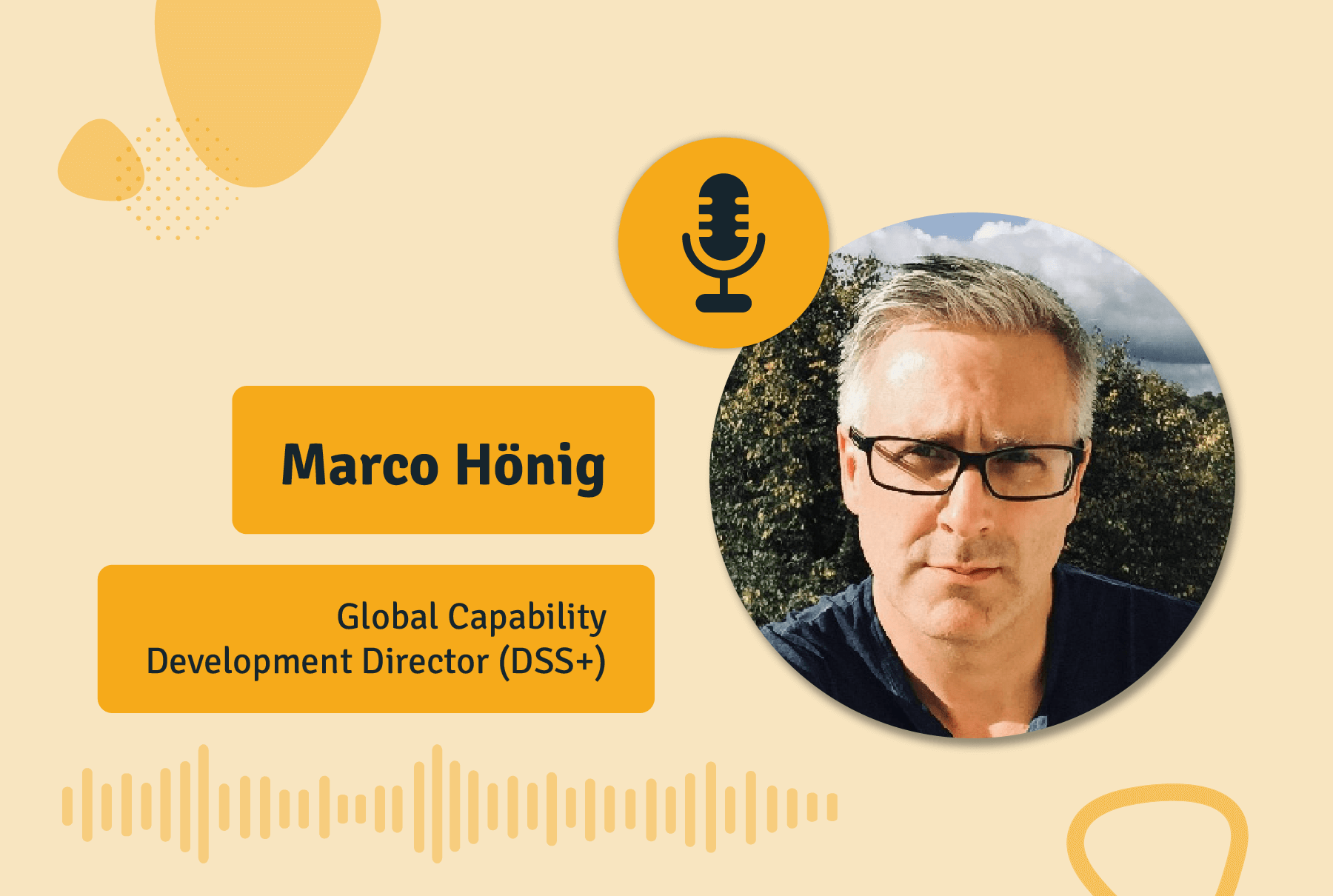Why You Need to Focus on the Bigger Business Picture Before Learning Impact

Discover why you should start with business strategy theory when designing truly impactful capability and competency programs.
Marco Hönig is the Global Capability Development Director at DSS+. He joins Blake Proberts on the Strategic L&D Podcast to discuss how to evolve learning strategies during business change, why defining competencies and technical skills allows you to focus on impactful learning, and how defining capabilities and competencies brings benefits down the line, even if it all seems theoretical at first. Listen to the full episode above or watch below.
Key takeaways
“Things like business strategies, talent, HR strategies don’t fall from the sky, but are usually the [outcome] of intense conversations. You need permission to engage in a discussion, and that requires a certain proximity and exposure to business leaders.”
1. Speak leaders’ language.
Take time to understand business strategy and the key terms they use to talk about it, because it’ll get you a hell of a lot closer to their buy-in plus show you what your goals should be.
“Use different horizons [to] communicate. What is the outlook for the immediate, near-term?”
2. Early bird gets the worm.
Proactively gather intelligence on current state, business goals, stakeholders, and existing frameworks to align strategies effectively.
“Having the language of the competency and skills framework allows you—in a better or more consistent way—to articulate what you’re really looking for.”
3. Think about what business processes you can support.
Competencies put you closer to the heart of business needs, but you still need the right technology to support your processes.
“Technology is supporting and helping you translate what you want to do with your L&D strategy, but it shouldn’t be the starting point.”
4. Technology should enable and support.
The best solution for you is one that will work for you. Consider what could be automated or scaled more easily—and what works with your budget.
“What kind of business decisions are we in place to make with this information?”
5. Metrics need context to matter.
Don’t just pull data for the sake of it, especially if it takes time and money to do so. Start with what expectations around learning your org has.
See more from our host: Blake Proberts
Hear more of the Strategic L&D Podcast on Spotify and Apple. You’ll also find us in video form on YouTube.